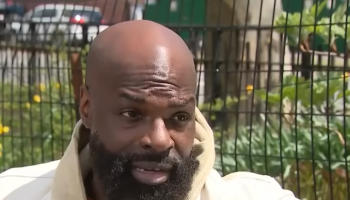Our nation is engaged in a candid debate about how to maintain economic security for the middle class. For many in our community, it’s not just about maintaining middle class security, but about attaining that middle class dream in the first place.
SEE ALSO: Paul Ryan, A Lie, Is A Lie, Is A Lie
For millions of African Americans, good factory jobs, especially in the auto industry, drew them North with the promise of a middle class life. Later generations would not only work the assembly lines but would move up the ranks in to management.
African-American entrepreneurs found opportunities to open dealerships or become parts suppliers. GM is also widely credited with appointing the late Rev. Leon Sullivan as the first African-American member of a board of a major corporation. The auto industry fueled a half-century’s economic gains for African Americans, leading one economist to call the auto industry “one of the engines of the African-American middle class.”
But the benefits of the industry went beyond those on the assembly line or at suppliers and dealerships to the countless local restaurants, hospitals, grocery stores, realtors, and other businesses where auto industry workers spent their pay checks. Indeed, the Center for Automotive Research has estimated that for every one job in the auto industry, three more are supported in other sectors thereby helping to build and support middle class communities throughout the country.
Independent economists estimated that more than a million jobs would have been lost in our economy had GM and Chrysler failed. So keeping the auto industry not only around, but strong, was vital not only to people who held a United Auto Workers union card, but also to the greater community.
As a member of the Presidential Task Force on the Auto Industry, I had a seat at the table while the President and leaders in Congress were working through the decision to stand with the auto industry.
We heard from the auto companies, suppliers, and dealerships about what would happen to their businesses if the government stood back and refused to help during the worst credit crunch since the Great Depression. We heard from workers about the impact on their ability to support their families and educate their children if their jobs were cut and from retirees about the impact of the loss of the pension and healthcare benefits.
We heard from mayors in communities like Kokomo, Ind., to Toledo, Ohio, and Warren, Mich., about what would happen to their schools and to city services, which depended upon the property taxes from the local plant. On top of these economic impacts we also considered the consequences of what could happen to our national security if the United States found our capacity to produce motor vehicles severely limited.
Thanks to the President’s support, the industry is coming back. As it does, we can see clearly how much of a role the automotive sector plays in supporting the rest of our economy.
Since June of 2009, when the auto industry had exited bankruptcy, the auto industry has created nearly 240,000 jobs – the strongest period of job growth since former President Bill Clinton was in office. In states where the auto industry is concentrated, employment growth has picked up across other sectors and unemployment is down disproportionately.
In Michigan alone, total employment has grown by 148,700, while in Indiana, it grew by 118,000 and in Ohio by 108,100 since June of 2009. By May of this year, unemployment rates in these big auto states were about 30 to 40 percent lower than they had been in June 2009.
There is clearly still more work to do.
The President knows that unemployment is still too high, and that we need to do more to create jobs and continue growing our economy, but there is no doubt that the auto industry is helping to open up some paths back to the middle class.
But it’s also clear that the President’s decision to stand with the auto industry – and to reject short-sighted suggestions like Mitt Romney’s proposal to let the auto companies go bankrupt – has paid off for the country.
Our country can longer afford the kind of “you’re on your own” economics Mitt Romney and the Republicans preach. We’ve tried it, and tried it again; we’ve seen it fail and we’ve paid the price.
Had the industry been allowed to collapse, the consequences would have been catastrophic for African Americans. Losing your job, your home, your health care and seeing communities forced to close schools and layoff police and firefighters may not mean much to those worth hundreds of millions of dollars. But for ordinary people, these consequences of letting Detroit go bankrupt would have been all too real.
By standing with American workers and businesses, the President not only prevents things from getting worse, but laid the ground work for the recovery of the industry and the communities that rely upon it.
When I look back at conversations, meetings, and strategy sessions we had over the course of those many months, I realize that this was the only decision to make both for the African-American community and the country.
Ed Montgomery is an economist and Dean of the Georgetown Public Policy Institute. He was also a member of the Presidential Task Force on the Auto Industry and served as the Director of Recovery for Auto Communities and Workers in the Obama administration.
Like Magic 106.3 on Facebook to stay updated with the latest entertainment news and original interviews!
Recent Updates
- The Top 30 Hurricanes In US History [Gallery]
- MJ’s Kids Visit Michael’s Childhood Home
- Today is Michael Jackson Birthday!
- MUST SEE- TV One’s “Verses & Flow
Teacher Faces Firing For Helping ‘Dumb As Hell’ Students Cheat
Former Auto Advisor: ‘Obama’s Decision To Support Auto Industry Saved Our Jobs’ was originally published on newsone.com















